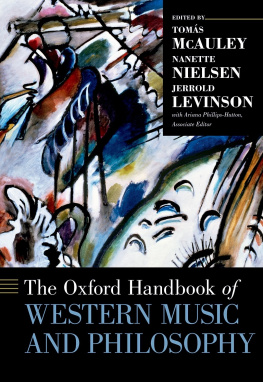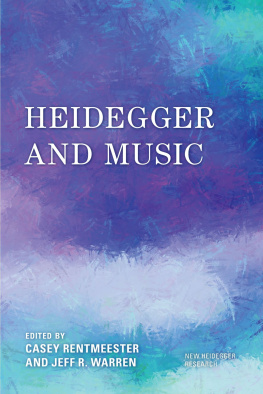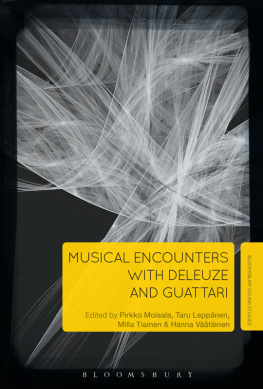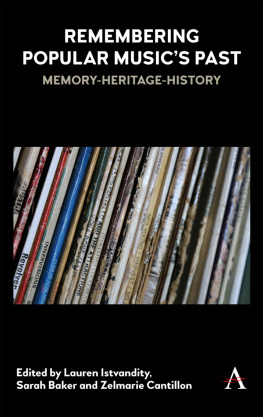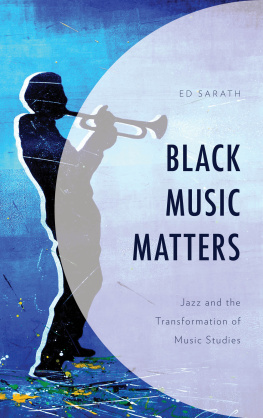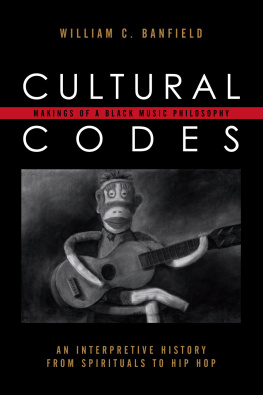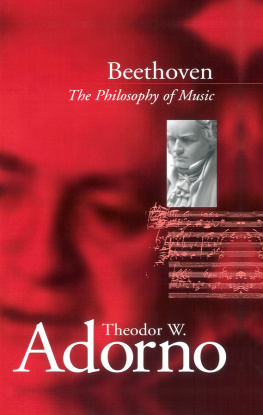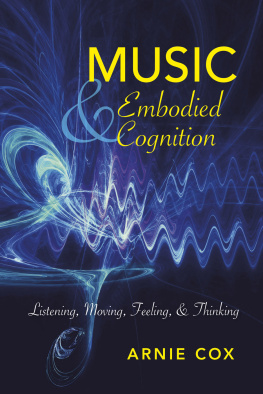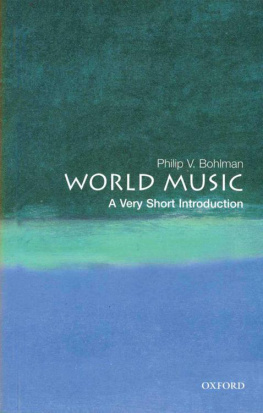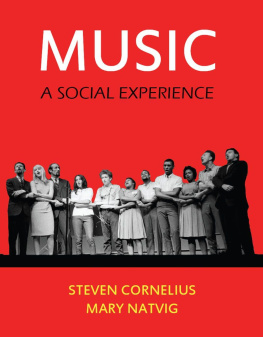Oxford University Press is a department of the University of Oxford. It furthers the Universitys objective of excellence in research, scholarship, and education by publishing worldwide. Oxford is a registered trade mark of Oxford University Press in the UK and certain other countries.
198 Madison Avenue, New York, NY 10016, United States of America.
All rights reserved. No part of this publication may be reproduced, stored in a retrieval system, or transmitted, in any form or by any means, without the prior permission in writing of Oxford University Press, or as expressly permitted by law, by license, or under terms agreed with the appropriate reproduction rights organization. Inquiries concerning reproduction outside the scope of the above should be sent to the Rights Department, Oxford University Press, at the address above.
You must not circulate this work in any other form and you must impose this same condition on any acquirer.
Contents
Introduction
Toms McAuley , Nanette Nielsen , and Jerrold Levinson
Historical Musicology and Philosophy
Julian Johnson
Music Theory and Philosophy
Alexander Rehding
Ethnomusicology and Philosophy
Ellen Koskoff
Analytic Philosophy of Music
David Davies
Continental Philosophy of Music
Christopher Norris
Ancient Greece
Armand DAngour
The Middle Ages
Elizabeth Eva Leach
The Early Modern Period
Bruce R. Smith
The Enlightenment
Toms McAuley
The Twentieth Century
Tamara Levitz
Epistemologies
Ian Cross and Elizabeth Tolbert
Ethics
Ariana Phillips-Hutton and Nanette Nielsen
Phenomenology
Simon Hffding
Ontology
Charles O. Nussbaum
Theology
Jeremy Begbie
Philosophy of Language
Hanne Appelqvist
Hermeneutics
Lawrence Kramer
Deconstruction
Naomi Waltham-Smith
Posthumanism
Gary Tomlinson
Improvisation
Bruce Ellis Benson
Composition
Joseph Dubiel
Performance
Paul Thom
Listening
Marcel Cobussen
Vocal Music
Freya Jarman
Electronic Music
Joanna Demers
Popular Music
Theodore Gracyk
Blacksound
Matthew D. Morrison
Jazz
Garry L. Hagberg
Opera
Michael Fend
Absolute Music
Sarah Collins
Consciousness
David Clarke
Evolution
Stephen Davies
Expression
Mark Evan Bonds
Gender
J. P. E. Harper-Scott
The Ineffable (and Beyond)
Carolyn Abbate and Michael Gallope
Meaning and Autonomy
Max Paddison
Meaning and Scepticism
Paul Boghossian
Mercy
Martha C. Nussbaum
Nature
Stephen Decatur Smith
Making Sense
Andrew Bowie
Society
Michael Gallope
Space
Andrew Kania
Time
Christopher Hasty
Authenticity
Julian Dodd and John Irving
Beauty
Nick Zangwill and Stephen Hinton
Emotion
Michael Spitzer and Derek Matravers
Enchantment
Scott Burnham and Gordon Graham
Expectations
Jenny Judge and Bence Nanay
Galant Music
Jean-Luc Nancy , trans. Naomi Waltham-Smith and Jerrold Levinson , with an introduction by Naomi Waltham-Smith
51a. Perception
Christopher Peacocke
51b. Response to Christopher Peacocke: Perception
Nicholas Cook
52a. Subjectivities
Susan McClary
52b. Response to Susan McClary: Subjectivities
Jeanette Bicknell
This large-scale project has been under way for a number of years and more people have been involved at various stages than it is possible to recount here. Building on the rich history that we highlight in the Introduction, dialogue between musicologists, philosophers, and scholars in a range of related disciplinary areas has, since 2010, flourished at the particular meeting point that has been the Royal Musical Association Music and Philosophy Study Group (RMA MPSG). It was at this groups conferences, bristling with ideas, debates, and passion, that the initial seeds for the current Handbook were sown. All three of the main Handbook editors have been immersed in these events from the start: McAuley and Nielsen as founding RMA MPSG committee members, and Levinson as advisory board member and, in 2017, as keynote speaker.
We thus express our gratitude here to the institutions that have made these conferences happen, notably the Royal Musical Association, the British Society of Aesthetics, and the Departments of Music and of Philosophy at Kings College London, but also the Arts & Humanities Research Council, the Music & Letters Trust, the Mind Association, the University of Nottingham, Trinity Laban Conservatoire, the University of Hull, Cambridge University (both the Faculty of Music and the Margaret Beaufort Institute for Theology), the University of Londons Institute for Musical Research, Royal Holloway, University of London, and Birkbeck, University of London. We are also grateful to the many associated groups that supported the conferences, whether by organizing individual panels or by collaborating on whole events. Amongst the numerous individuals whose work made the conferences possible, we thank our many previous co-organizers and colleaguesnot to mention our successorson the committee of the RMA MPSG, and offer particular thanks to Susan Bagust, John Deathridge, Vctor Dur-Vil, and Michael Fend, whose encouragements formed the cornerstone of the groups foundation.
That said, for all its historical, practical, and emotional roots in the RMA MPSG, this Handbook remains a free-standing project, one that reflects the collective goals, values, and aspirations of its individual authors and editors, rather than those of any particular organization. We also note appreciatively the work of music and philosophy study/interest groups in the American Musicological Society and the Society for Music Theory, and of the British Society of Aesthetics and the American Society for Aesthetics, which have formed natural homes for the work of many scholars represented in the pages that follow.
Given the wide scope of the present volume, we took the unusual decision to have its chapters peer-reviewed individually by readers expert in each given area. As such, thanks are owed to a veritable army of anonymous reviewers, scholars who gave generously when their time was already significantly in demand. We are deeply grateful for all of the invaluable feedback and suggestions for improvements: the Handbook would not have reached its current state without them. Our work has been very ably supported by Rachel McCarthy and Anika Babel, who provided editorial assistance during the final months of the project, and by Oliver Chandler, who helped to set numerous music examples. A very special thanks goes to Ariana Phillips-Hutton, who started work on this project as an editorial assistant, but whose outstanding contribution to the project grew through its final years to a position where the title of Associate Editor seemed more fitting. Finally, none of the editorial assistance would have been possible without generous support from the University of Cambridge (Returning Carers Scheme), University College Dublin, and the University of Oslo. The editorial work of McAuley was itself generously supported by a British Academy Postdoctoral Fellowship. We would also like to extend our heartfelt thanks to Rowena Anketell, whose meticulous final copyedit improved the text in innumerable places, and to the dedicated staff at Oxford University Press, in particular to Suzanne Ryan, whose enthusiasm, encouragement, and wisdom allowed this project to happen, and to Lauralee Yeary, who answered more practical queries than was reasonable with patience and grace.

